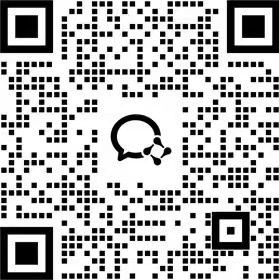
雅思口语part1话题:Common mistakes
在雅思口语Part 1中,"常见错误"(Common mistakes)是一个常见的话题。这个主题涵盖了各种常见的语言错误以及对这些错误的纠正。
以下是一些相关问题以及可能的回答示例:
Are there any common mistakes that people make in your native language?
- Yes, there are some common mistakes that people make in my native language. For example, a common mistake is using the wrong verb tense or not conjugating verbs correctly. Pronunciation errors, such as incorrectly pronouncing certain sounds, are also quite common.
Have you ever made any common mistakes when learning a foreign language?
- Yes, when learning a foreign language, I have made some common mistakes. One common mistake I made was mixing up the gender of nouns in a language that has gendered nouns. I would also sometimes misplace adjectives or misuse verb forms. However, with practice and feedback, I was able to correct these mistakes.
What are the most common mistakes that English learners make?
- One common mistake that English learners make is using the wrong preposition. For example, confusing "on" and "at" when talking about locations or "in" and "on" when referring to time. Verb tenses, particularly the present simple and present continuous, can also be a challenge for English learners.
How do you personally avoid making common mistakes in language learning?
- To avoid making common mistakes in language learning, I try to focus on grammar rules and practice them through exercises and speaking with native speakers. I also take note of the mistakes I've made and actively seek feedback to correct them. Regularly reviewing and practicing the language helps me become more aware of potential errors.
What advice would you give to someone who wants to avoid making common mistakes when learning a new language?
- My advice would be to immerse yourself as much as possible in the language. Practice speaking and writing regularly with native speakers or language exchange partners. Pay attention to grammar rules and common mistakes made by language learners. Additionally, don't be afraid to make mistakes and learn from them. Seeking feedback and actively working on improving your language skills will help you avoid common mistakes.
雅思口语part1话题:Common mistakes语料
1. Lack of Fluency:
- Mistake: Speaking with long pauses, hesitations, and "filler" words (e.g., um, uh, well).
- Solution: Practice speaking regularly to improve fluency and reduce hesitations. Focus on maintaining a steady flow of language.
2. Limited Vocabulary:
- Mistake: Repeating basic words or using simple language instead of more varied and precise vocabulary.
- Solution: Expand your vocabulary by learning new words and phrases. Practice using synonyms and context-appropriate expressions.
3. Grammar Errors:
- Mistake: Making frequent grammatical mistakes, such as verb tense errors or subject-verb agreement issues.
- Solution: Review English grammar rules and practice constructing different sentence structures. Seek feedback on your grammar from a language partner or teacher.
4. Mispronunciation:
- Mistake: Pronouncing words incorrectly or with unclear enunciation.
- Solution: Work on improving your pronunciation by listening to native speakers, practicing phonetic sounds, and imitating their speech patterns.
5. Not Answering the Question:
- Mistake: Providing unrelated or insufficient answers to the examiner's questions.
- Solution: Focus on understanding the question and answer directly. Provide relevant details and examples to support your response.
6. Overusing Filler Words:
- Mistake: Repeatedly using filler words (e.g., like, you know, well) that can make your speech sound less confident.
- Solution: Be aware of filler words and try to eliminate them from your speech. Practice pausing instead of using fillers to gather your thoughts.
7. Speaking Too Fast or Too Slow:
- Mistake: Speaking rapidly, making it difficult for the examiner to follow, or speaking too slowly, which may reduce fluency.
- Solution: Aim for a moderate pace that allows you to speak clearly and coherently. Practice speaking at a comfortable speed.
8. Lack of Elaboration:
- Mistake: Providing short, one-sentence responses without elaborating on your ideas.
- Solution: Develop your responses by adding details, examples, and explanations to make your answers more comprehensive.
9. Memorized Responses:
- Mistake: Giving prepared or memorized answers that may not be directly relevant to the questions asked.
- Solution: Be genuine in your responses and adapt to the specific questions during the test. Focus on expressing your own thoughts and experiences.
10. Nervousness and Lack of Confidence:
- Mistake: Letting nervousness or lack of confidence affect your speaking performance.
- Solution: Practice speaking in front of a mirror or with friends to build confidence. Remember that mistakes are normal and do not define your overall language ability.
11. Overusing Generalizations:
- Mistake: Making broad generalizations or sweeping statements without providing specific details or examples to support them.
- Solution: Avoid making overly general statements. Instead, provide concrete examples and evidence to back up your opinions.
12. Not Asking for Clarification:
- Mistake: Misunderstanding a question but not seeking clarification from the examiner.
- Solution: If you don't fully understand a question, politely ask the examiner to repeat or clarify it.
13. Lack of Paraphrasing:
- Mistake: Repeating the examiner's question verbatim in your response.
- Solution: Paraphrase the question or use synonyms to show a range of language and avoid repetition.
14. Neglecting Small Talk:
- Mistake: Being too focused on serious topics and neglecting small talk during Part 1 of the test.
- Solution: Engage in friendly small talk with the examiner to create a comfortable atmosphere before diving into more complex topics.
15. Not Staying On Topic:
- Mistake: Going off-topic and talking about unrelated matters during the conversation.
- Solution: Stay focused on the specific question or topic provided and avoid straying from the main subject.
16. Using Informal Language:
- Mistake: Using slang, informal language, or overly casual expressions inappropriate for a formal speaking test.
- Solution: Keep your language formal and appropriate for an academic setting, avoiding slang and colloquialisms.
17. Limited Use of Connectors:
- Mistake: Not utilizing connectors or discourse markers to link ideas and make your speech more cohesive.
- Solution: Practice incorporating connectors like "however," "therefore," "in addition," etc., to show the relationship between your ideas.
18. Rushing Through Part 2 Preparation:
- Mistake: Not using the one-minute preparation time in Part 2 effectively, resulting in disorganized responses.
- Solution: Use the preparation time wisely to jot down key points and create a structured response.
19. Overusing Memorized Phrases:
- Mistake: Over-relying on memorized phrases or pre-learned responses that may not fit the specific question.
- Solution: While some preparation is essential, focus on being flexible and adapting your responses to the given questions.
20. Neglecting Non-Verbal Communication:
- Mistake: Ignoring non-verbal communication aspects like eye contact and body language during the test.
- Solution: Pay attention to your non-verbal cues, as they contribute to effective communication and show confidence.







